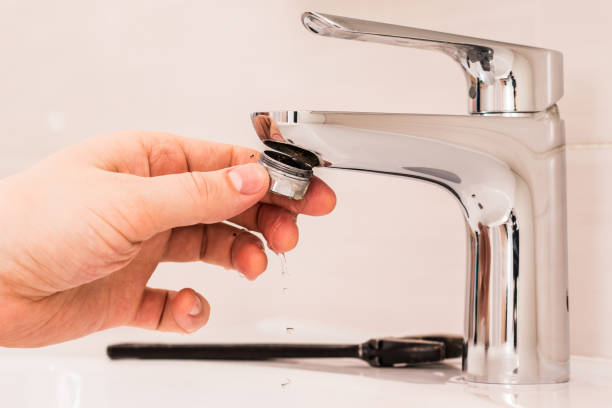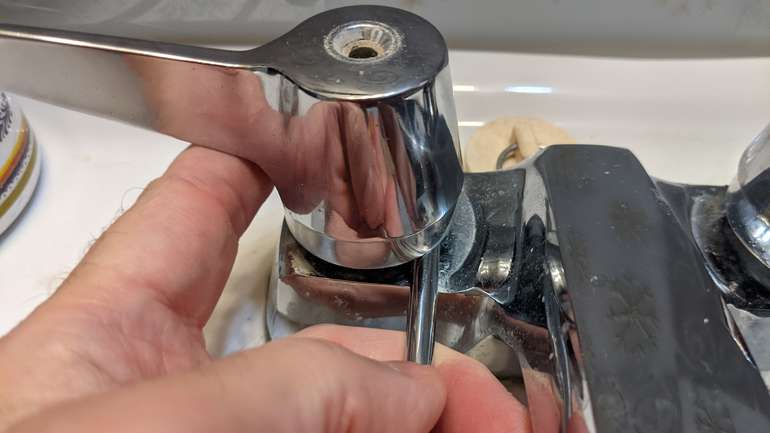Discovering the Value of Resolving a Leaking Faucet
Discovering the Value of Resolving a Leaking Faucet
Blog Article
Right here below you can get additional first-rate answers concerning Why Are My Faucets Dripping (And Can I Fix It Myself)?.

Trickling taps could appear like a minor trouble, but their effect goes beyond just the annoyance of the sound. From drainage to sustaining unnecessary financial prices and wellness dangers, disregarding a dripping tap can cause various effects. In this post, we'll explore why it's vital to address this common family problem without delay and successfully.
Waste of Water
Environmental Influence
Leaking faucets contribute substantially to water wastage. According to the Environmental Protection Agency (EPA), a single tap trickling at one drip per secondly can lose greater than 3,000 gallons of water each year. This not just stress water sources yet also impacts communities and wild animals depending on them.
Step-by-Step Guide to Taking Care Of a Dripping Faucet
Devices Called for
Before attempting to fix a dripping faucet, collect the needed tools, consisting of an adjustable wrench, screwdrivers, replacement parts (such as washers or cartridges), and plumber's tape.
Common Tap Issues and Their Solutions
Recognize the kind of faucet and the specific problem creating the drip. Common troubles include worn-out washing machines, rusty valve seats, or malfunctioning O-rings. Refer to manufacturer guidelines or on-line tutorials for step-by-step guidance on repair work.
Financial Expenses
Raised Water Expenses
Past the environmental impact, dripping taps can pump up water bills considerably. The collected wastefulness in time translates right into higher energy costs, which might have been prevented with prompt repair work.
Prospective Property Damages
In addition, long term trickling can lead to damage to fixtures and surfaces bordering the tap. Water accumulation can cause discoloration, corrosion, and even architectural problems if left neglected, causing extra repair prices.
Wellness Problems
Mold And Mildew and Mold Development
The continuous visibility of dampness from a trickling faucet creates an ideal atmosphere for mold and mildew and mildew development. These fungis not just compromise indoor air quality yet also position wellness risks, specifically for people with breathing problems or allergies.
Waterborne Diseases
Stagnant water in trickling faucets can come to be a breeding ground for microorganisms and various other virus, increasing the risk of waterborne conditions. Pollutants such as Legionella bacteria grow in stagnant water, potentially resulting in serious diseases when ingested or breathed in.
DIY vs. Professional Repair
Advantages and disadvantages of DIY Repair
While some might try to deal with a dripping faucet themselves, do it yourself repairs come with their own collection of challenges. Without proper understanding and tools, do it yourself efforts can intensify the problem or bring about insufficient fixings, prolonging the problem.
Benefits of Hiring an Expert Plumber
Working with an expert plumber guarantees that the underlying reason for the dripping faucet is attended to successfully. Plumbers possess the competence and devices to identify and repair tap concerns successfully, saving time and decreasing the threat of further damages.
Environmental Responsibility
Individual Contribution to Conservation
Taking obligation for repairing trickling faucets aligns with broader initiatives towards water conservation and ecological sustainability. Every individual's activities collectively make a considerable influence on maintaining precious resources.
Sustainable Living Practices
By prioritizing punctual repairs and adopting water-saving practices, people contribute to sustainable living methods that benefit both present and future generations.
Safety nets
Routine Maintenance Tips
To stop trickling faucets, perform regular maintenance such as cleansing aerators, examining for leaks, and changing worn-out parts without delay. Additionally, think about installing water-saving devices or updating to much more reliable components.
Relevance of Prompt Repairs
Attending to trickling faucets as quickly as they're seen protects against further water waste and prospective damages, inevitably conserving both water and cash in the future.
Influence On Home Value
Understanding of Well-Maintained Residential Or Commercial Property
Keeping a home in good condition, consisting of attending to upkeep concerns like dripping faucets, enhances its viewed value and worth among prospective customers or lessees.
Impact on Resale Worth
Features with well-maintained plumbing components, including taps, command higher resale worths in the property market. Dealing with trickling faucets can add to a favorable impression throughout residential or commercial property assessments and arrangements.
Conclusion
Attending to a trickling tap goes beyond mere benefit; it's a necessary action toward saving water, decreasing monetary expenses, and securing health and wellness and residential property. Whether via do it yourself repair services or expert support, taking action to fix trickling faucets is a small yet impactful method to advertise responsible stewardship of sources and contribute to a much healthier, more sustainable future.
How to Fix a Leaky Faucet: Step-by-Step Repair Guide
A leaky faucet may seem like a simple annoyance, but if it's not fixed promptly, that leak could cost hundreds to potentially thousands. From water damage to mold, mildew, and high water bills, even a tiny leak can be catastrophic if left unattended. Damage like this can even affect the overall value of your home, so it's important to take the right approach for leaky faucet repair. You may need the help of a plumber in some cases, but we've got a few tips you can try on how to fix a leaky faucet before calling the pros.
Four Faucet Types
When you're learning how to fix a leaky faucet, the first step is knowing what kind of faucet you're working with! There are four common types.
Cartridge Faucets
Cartridge faucets come in one- or two-handled varieties. In one-handled cartridge faucets, hot and cold water combines in a single cartridge. In the two-handled versions, hot and cold water are controlled separately and mixed in the faucet.
Ball Faucets
Ball faucets have a single lever you push up and down to adjust the pressure and rotate to change the temperature. A slotted metal ball controls the amount of water allowed into the spout.
Compression Washer Faucets
They're the oldest type of faucet, but they're still used in many homes — especially older ones. Compression faucets have two separate handles that, when turned, raise or lower the washer that seals a water valve. This valve stops water from flowing through the faucet when it is turned off.
Disc Faucets
Disc faucets rarely need to be repaired due to their maintenance-free design. The water flow is controlled by two discs — the upper one raises and lowers against a fixed lower disc, creating a watertight seal. If your disc faucet starts leaking, you may need to replace the seals or clean residue buildup from the inlets.
Fixing a Leaky Faucet
Step 1: Turn Off the Water
Whether you're learning how to fix a leaky bathtub faucet or how to fix a leaky kitchen faucet, always turn off the water supply to your working area when you're fixing a leak. The last thing you want is a flood added to your list of things to fix.
Look for the shutoff valves below your sink or around the tub and turn them clockwise to stop the water flow. If your faucet doesn't have shutoff valves, you may need to turn off the water for the whole house. Check to make sure it's off by turning the faucet on. If nothing comes out, you're ready to start the repair.
Step 2: Take Apart the Faucet
How you disassemble your faucet depends on the type of fixture you have. You can use a flathead screwdriver to remove the caps on top of the handle or handles for cartridge and compression faucets. Inside, you should see handle screws. Unscrew these with a screwdriver to remove the handle.
Disc- and ball-style faucets will typically have an inlet screw near the handle, and removing that will reveal the interior of the faucet.
Detach the Valve Stem
For cartridge- and compression-style faucets, you'll see the inner valve stem or cartridge once you remove the faucet handles. If you have a compression faucet, unscrew the brass valve stem. If you have a cartridge faucet, pull out the cartridge. If your cartridge has been in place for a while, it may require some tools or extra force to remove it due to mineral deposits.
Examine and Replace Parts
Once you've removed the parts, check them out to confirm what needs to be replaced. You may see corroded rubber washers, O-rings, stems, or cartridges. On a ball-style faucet, check the seats and springs for damage.
If you need to repair a leaky disc faucet, check the inlet and seals on the lower disc.
Once you determine what parts must be replaced, visit your local hardware store. Bring the damaged parts with you to ensure you can purchase the correct components to replace them.
Clean Valves and Faucet Cavity
If you've removed a stem or cartridge, you may notice mineral buildup in the faucet's threads. Use white vinegar to clean the valve seat by soaking it for a few minutes, then scrub it away with a soft toothbrush and rinse with warm water. You can also clean the interior of the faucet in the same way.
Reassemble the Faucet
Once your faucet is cleaned and the required parts have been replaced, it's time to reassemble it. Put the pieces back together and slowly turn the water supply back on. Doing this slowly is crucial because too much initial water pressure can damage the new hardware you've just installed.
https://homewarranty.firstam.com/blog/how-to-fix-leaky-faucet

I ran across that page about Why Is It Important To Fix Your Leaking Tap/Faucet? while perusing the web. In case you liked our blog entry please remember to share it. Thank you so much for going through it.
Report this page